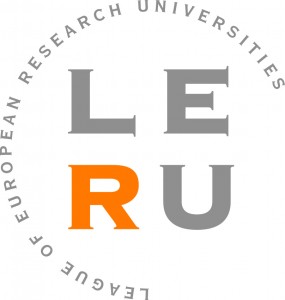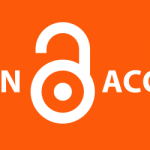 Bournemouth University has today signed up to the statement Moving Forwards on Open Access proposed by the League of European Research Universities (LERU), released in October 2015. The document calls upon the European Commission and the forthcoming Dutch EU Presidency to actively support open access policies to ensure that research funding goes to research, not to publishers, by working with all stakeholders to bring sensible solutions to the fore.
Bournemouth University has today signed up to the statement Moving Forwards on Open Access proposed by the League of European Research Universities (LERU), released in October 2015. The document calls upon the European Commission and the forthcoming Dutch EU Presidency to actively support open access policies to ensure that research funding goes to research, not to publishers, by working with all stakeholders to bring sensible solutions to the fore.
 One of the key aims will be to stop the practice of ‘double dipping’ whereby institutions effectively pay publishers twice – once via a journal subscription fee and secondly via article processing charges (APCs) for gold open access articles. LERU is calling on the EC to review the business models of open access publishing and cites practices adopted by some publishers that allow universities to offset APCs against subscription costs, thus lessening the danger of ‘double dipping’. The aim of this approach is to allow European research to have maximum impact by making it publicly available immediately and to release funds for universities to invest in further research.
One of the key aims will be to stop the practice of ‘double dipping’ whereby institutions effectively pay publishers twice – once via a journal subscription fee and secondly via article processing charges (APCs) for gold open access articles. LERU is calling on the EC to review the business models of open access publishing and cites practices adopted by some publishers that allow universities to offset APCs against subscription costs, thus lessening the danger of ‘double dipping’. The aim of this approach is to allow European research to have maximum impact by making it publicly available immediately and to release funds for universities to invest in further research.
 The other key agenda item is to achieve greater consistency in embargo periods for green open access. The current situation is that there exist a variety of embargo periods (ranging from six to 24 months plus) which is confusing for authors, readers and universities. The aim is to ensure these are as short as possible to ensure cutting edge research makes its way into the public domain as quickly as possible. There is also currently a lack of uniformity of embargo periods for publishers and journals in different countries, and LERU are proposing this should be standardised.
The other key agenda item is to achieve greater consistency in embargo periods for green open access. The current situation is that there exist a variety of embargo periods (ranging from six to 24 months plus) which is confusing for authors, readers and universities. The aim is to ensure these are as short as possible to ensure cutting edge research makes its way into the public domain as quickly as possible. There is also currently a lack of uniformity of embargo periods for publishers and journals in different countries, and LERU are proposing this should be standardised.
LERU are currently calling upon the research community to sign up to the statement. To date over 3,000 individuals and institutions have signed up. The next step is for the statement and its support to be submitted to Commissioner Carols Moedas (research, science and innovation) and the Dutch EU Presidency in the first half of 2016.
 You can now publish open access for free with Springer Open Choice journals!
You can now publish open access for free with Springer Open Choice journals!










 Second NIHR MIHERC meeting in Bournemouth this week
Second NIHR MIHERC meeting in Bournemouth this week Dr. Ashraf cited on ‘Modest Fashion’ in The Guardian
Dr. Ashraf cited on ‘Modest Fashion’ in The Guardian NIHR-funded research launches website
NIHR-funded research launches website MSCA Postdoctoral Fellowships 2025 Call
MSCA Postdoctoral Fellowships 2025 Call ERC Advanced Grant 2025 Webinar
ERC Advanced Grant 2025 Webinar Horizon Europe Work Programme 2025 Published
Horizon Europe Work Programme 2025 Published Horizon Europe 2025 Work Programme pre-Published
Horizon Europe 2025 Work Programme pre-Published Update on UKRO services
Update on UKRO services European research project exploring use of ‘virtual twins’ to better manage metabolic associated fatty liver disease
European research project exploring use of ‘virtual twins’ to better manage metabolic associated fatty liver disease